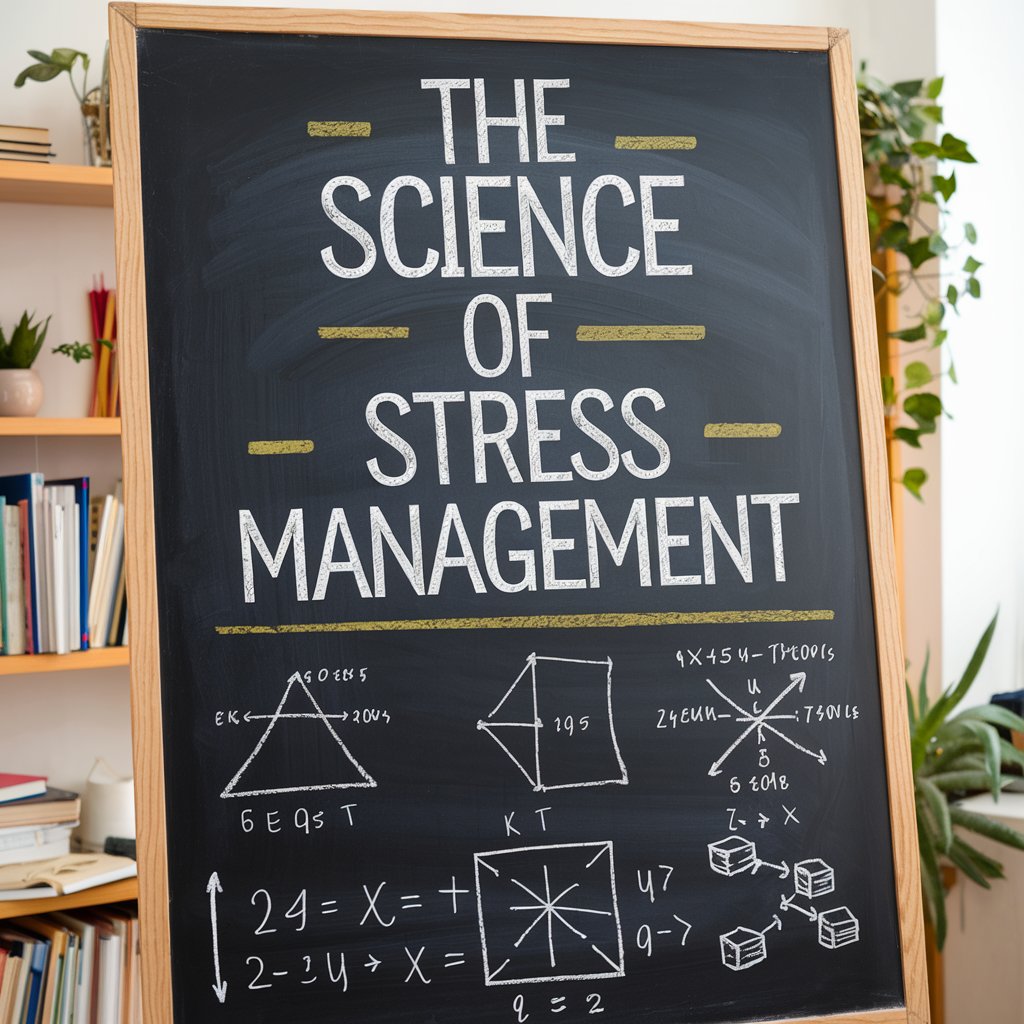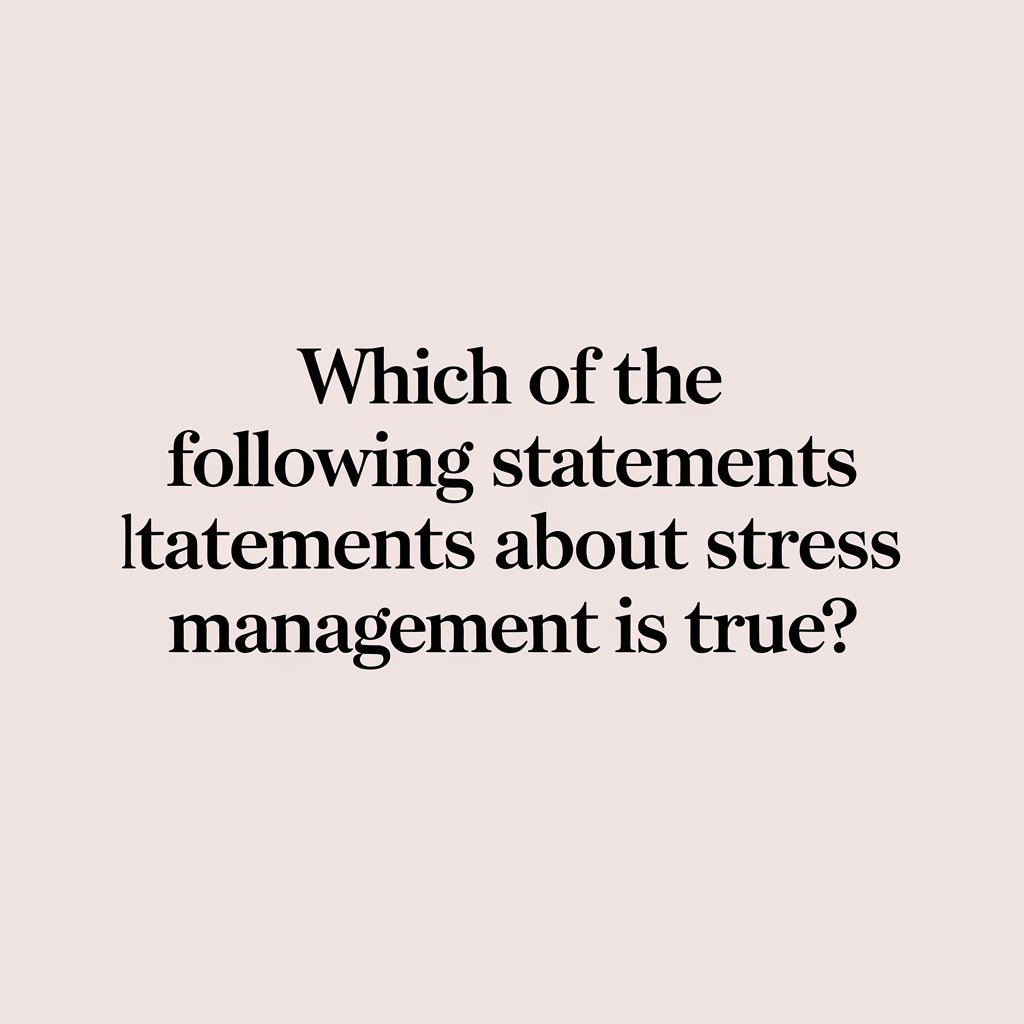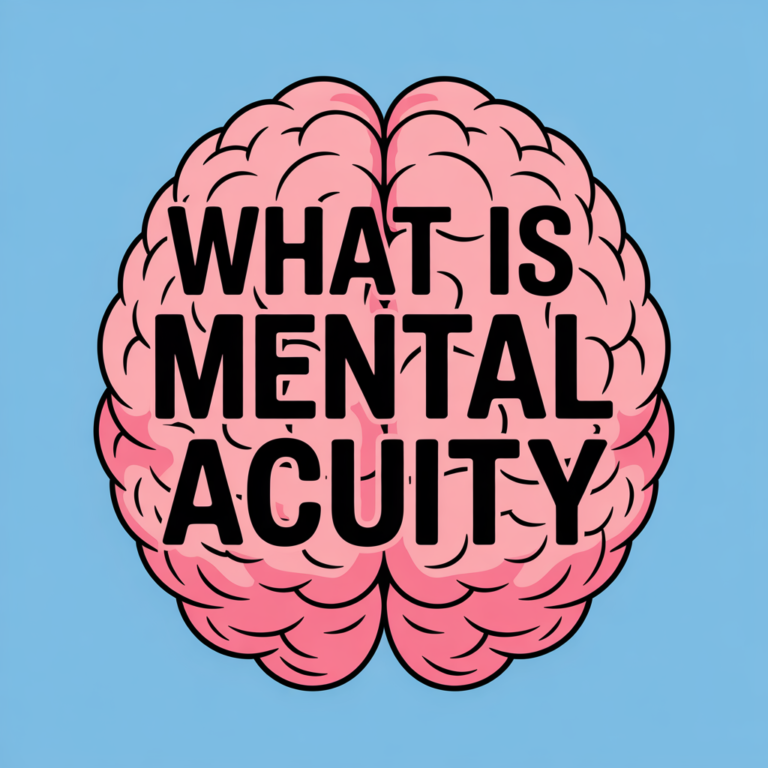Stress is a part of life. Whether it’s work, personal life, or external factors, we all face it at some point. However, what separates those who can thrive despite stress from those who struggle under its weight is how they manage it. In this article, we will explore the different aspects of stress management and answer the question: which of the following statements about stress management is true? We will dive into evidence-based strategies, debunk common myths, and present a holistic approach to stress management that can be applied in various aspects of life.
Understanding Stress: The Basics
Before we jump into stress management strategies, it’s essential to understand what stress is and how it affects the body. Stress is a natural physical and mental reaction to life experiences. When you experience stress, your body releases hormones like cortisol and adrenaline, which trigger the “fight or flight” response. This can be helpful in short bursts, but prolonged stress can have detrimental effects on both physical and mental health.
There are two types of stress: acute and chronic.
- Acute Stress: This is short-term stress that happens in response to a specific situation or event, such as a work deadline or a big presentation. It’s usually temporary and resolves once the situation is over.
- Chronic Stress: This is long-term stress that occurs when you are constantly under pressure or dealing with ongoing challenges. It can lead to more serious health problems like anxiety, depression, cardiovascular disease, and weakened immune function.
Now that we understand stress, let’s explore which of the following statements about stress management is true and how we can manage it effectively.
The Science of Stress Management

Stress management refers to techniques and therapies that help individuals deal with stress in a healthy way. Research has shown that effective stress management can improve overall well-being, enhance emotional resilience, and improve physical health. But, which of the following statements about stress management is true? Let’s look at several scientifically-backed methods that are proven to reduce stress.
1. Exercise: A Powerful Stress Reliever
One of the most effective stress management techniques is regular physical activity. Exercise has been proven to reduce levels of cortisol, the body’s primary stress hormone, and boost the production of endorphins, the brain’s “feel-good” chemicals.
Whether it’s jogging, swimming, yoga, or strength training, getting your body moving is a natural way to alleviate stress. Moreover, exercise also improves sleep, increases energy levels, and helps regulate mood, all of which contribute to better stress management.
Why Does Exercise Work?
When you exercise, your body releases tension, and your mind becomes more focused. Physical activity also enhances the capacity of the brain to cope with stress. Studies show that people who exercise regularly experience fewer symptoms of stress and are better equipped to handle challenges when they arise.
2. Mindfulness and Meditation: Being Present
Another effective method for stress management is mindfulness and meditation. Mindfulness involves staying present and focused on the current moment, without judgment. Meditation is a technique that helps you relax and manage your thoughts, emotions, and physical sensations.
Research has demonstrated that mindfulness and meditation can lower stress levels, improve focus, and even enhance cognitive function. In fact, people who practice mindfulness regularly tend to have lower levels of anxiety and depression.
The Benefits of Mindfulness
Mindfulness teaches you to acknowledge your feelings of stress without allowing them to take control of your actions. By practicing mindfulness, you become more aware of how stress affects your body and mind, enabling you to react more calmly and with greater clarity.
3. Adequate Sleep: Rest Is Key
Sleep is often overlooked in the conversation about stress management, but it plays a crucial role in your ability to handle stress. When you’re sleep-deprived, your body is more susceptible to the effects of stress. Lack of sleep increases cortisol levels, making it harder for you to cope with the pressures of daily life.
Adequate sleep is essential for overall health, as it allows your body to repair and rejuvenate itself. Research shows that people who get 7-9 hours of sleep each night are better equipped to deal with stress and have improved cognitive function.
How Sleep Affects Stress
Sleep deprivation leads to irritability, reduced concentration, and heightened emotional reactions. On the other hand, good-quality sleep restores energy, enhances mood, and improves decision-making ability, all of which are vital in managing stress effectively.
Stress Management Myths: Debunking Common Misconceptions

There are many myths surrounding stress management. Let’s explore which of the following statements about stress management is true by debunking some of the most common misconceptions.
1. “Stress is Always Bad” – False
Not all stress is harmful. As mentioned earlier, there is a distinction between acute and chronic stress. Short-term stress can be motivating, helping you focus and perform better in challenging situations. It’s the prolonged, chronic stress that becomes problematic.
2. “Stress Management Is About Avoiding Stress” – False
Stress management is not about completely eliminating stress from your life (which is impossible), but about learning how to handle it more effectively. The goal is to reduce the negative impact stress has on your well-being, not to avoid it entirely.
3. “Drinking Alcohol Reduces Stress” – False
While alcohol might provide a temporary feeling of relaxation, it’s not a healthy long-term stress management strategy. In fact, alcohol can increase stress over time by disrupting sleep patterns, affecting mood, and impairing cognitive function. Relying on alcohol or other substances to manage stress can lead to addiction and other health issues.
The Role of Nutrition in Stress Management
What you eat can also influence how well you cope with stress. A balanced diet rich in vitamins, minerals, and healthy fats helps regulate hormone levels and supports brain function, which is crucial for managing stress.
Foods That Help Manage Stress:
- Complex Carbohydrates: Whole grains, vegetables, and fruits help stabilize blood sugar levels, which can prevent mood swings and irritability.
- Omega-3 Fatty Acids: Found in fatty fish like salmon and in flaxseeds, omega-3 fatty acids help regulate stress hormones and reduce inflammation in the body.
- Magnesium-Rich Foods: Foods like spinach, almonds, and avocados are rich in magnesium, a mineral that helps relax muscles and improve sleep.
- Vitamin B-Rich Foods: B vitamins, found in foods like eggs, chicken, and leafy greens, play a role in maintaining a healthy nervous system and combating anxiety.
The Power of Social Support
Having a strong support network is a key factor in managing stress. Studies have shown that individuals with supportive friends and family members are more resilient in the face of stress. Social interactions can provide emotional support, reduce feelings of isolation, and increase your sense of well-being.
How Social Support Helps
Talking to someone you trust about your stresses can help you process your feelings and gain perspective. In addition, social activities like spending time with friends or family can provide a welcome distraction from stress, allowing you to relax and recharge.
Time Management: The Key to Reducing Stress
One of the biggest contributors to stress is poor time management. When you feel like you’re constantly running out of time, it can create a sense of overwhelm. Learning how to prioritize tasks, set realistic goals, and create a structured schedule can significantly reduce stress.
Time Management Techniques for Stress Reduction:
- Prioritize Tasks: Focus on the most important tasks first and break larger projects into smaller, manageable steps.
- Set Realistic Goals: Don’t overcommit yourself. Set achievable goals that you can accomplish within a reasonable time frame.
- Use Time Blocks: Set aside specific blocks of time for work, relaxation, and social activities. This will help you stay focused and reduce procrastination.
Coping Mechanisms: Healthy vs. Unhealthy
There are two types of coping mechanisms: healthy and unhealthy. Healthy coping mechanisms, such as exercise, meditation, and spending time with loved ones, help you manage stress effectively. On the other hand, unhealthy coping mechanisms, such as smoking, drinking alcohol, or overindulging in junk food, may provide temporary relief but exacerbate stress in the long term.
Healthy Coping Mechanisms:
- Deep Breathing: Practicing deep breathing exercises can quickly calm your nervous system and reduce stress.
- Progressive Muscle Relaxation (PMR): This technique involves tensing and relaxing different muscle groups to release physical tension caused by stress.
- Journaling: Writing down your thoughts and emotions can help you process stress and gain clarity.
Conclusion: Which of the Following Statements About Stress Management is True?
As we’ve explored throughout this article, stress management is not a one-size-fits-all solution. There are various strategies, including exercise, mindfulness, sleep, nutrition, and social support, that can help reduce the negative impact of stress. The truth is that stress is a natural part of life, but how we manage it can make all the difference in our mental and physical well-being.
Which of the following statements about stress management is true? Stress management is about finding the right tools and techniques that work for you and applying them consistently to maintain balance in your life.




